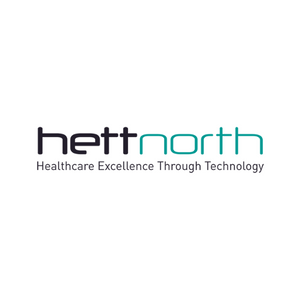In the corridors of healthcare, where every decision bears the weight of lives, innovation isn't just a luxury—it's a necessity. In the NHS particularly, the pressures facing healthcare providers are continuously evolving, demanding dynamic solutions to meet complex needs. Enter the era of generative AI automation—a groundbreaking frontier that is revolutionising healthcare as we know it.
Already, 72% of healthcare organisations have adopted or are in the process of adopting AI technologies, and those that do can expect to enhance patient experiences, improve efficiency, and lead to better outcomes.
Several cases for Generative AI uses in healthcare have already emerged, among those being advanced medical imaging capabilities, improving clinical trial processes, and now automating processes through conversational AI.
Conversational AI combines generative AI with natural language understanding (NLU) and automation. This technology is not only advanced enough to handle sophisticated natural language interactions with humans through either messaging or voice channels, but it can also reduce delays caused by operational inefficiency, elevate patient experience, and save countless hours of admin work.
This is increasingly significant when considering the widening skills gap in healthcare. In the UK, according to the Health Foundation, The King’s Fund, and Nuffield Trust, the shortage of NHS staff in England is now a greater threat to health services than funding challenges.
As the population ages and the skills gap widens, we will only continue to see pressures mount on an already stretched healthcare sector. Generative AI automation technologies present an opportunity for healthcare organisations to do more with less.
From patients scheduling their appointments to enquiring about clinic locations, automation tools can reduce administrative tasks by allowing patients to take care into their own hands through an AI chatbot or digital assistant. This then releases time back to healthcare administration staff to provide care to patients.
In addition to being beneficial to healthcare organisations, AI-powered digital assistants can also bridge the gap between in-person visits, resulting in more comprehensive and continuous care for patients.
Generative AI Automation in Action
Improving Patient Engagement:
Generative AI chatbots and digital assistants are being implemented to allow smooth interactions with patients, providing them with information about their health conditions, medications, and treatment plans. After all, effective communication is at the heart of quality healthcare. Conversational interfaces offer a user-friendly and accessible way for patients to seek advice, schedule appointments, and receive post-treatment guidance without needing human assistance. By promoting active patient engagement, healthcare providers can empower individuals to take control of their health, resulting in better outcomes and increased overall satisfaction.
Increased Operational Efficiency:
Conversational AI has been proven to streamline administrative processes in healthcare, particularly in appointment scheduling and reminders. Missed appointments also result in significant challenges and risks for both patients and healthcare providers, including delays in diagnosing conditions, and risk of complications but also contribute to impaired operational efficiency for providers. AI assistants can efficiently handle appointment bookings, cancellations, and rescheduling, giving time back to the NHS and eliminating scheduling errors.
Reduced Administrative Burden:
AI-powered chatbots equipped with advanced natural language processing capabilities can take the strain off administration staff by answering everyday queries and triaging patients quickly. In turn, this deflects calls away from busy hospital phone lines and releases time back to administration staff while resulting in fewer dropped calls from patients. As the chatbots are available 24/7, it means patients can access support when they need it, simultaneously relieving the pressure from already stretched health services.
Increase Accessibility:
Everybody should be able to access care when they need it, without the burden of language or accessibility barriers. Conversational AI-powered chatbots and digital assistants facilitate user-friendly interactions in any language patients require. Not only does this remove barriers to care but also improves and promotes inclusivity. These personalised and inclusive interactions can also make care more accessible for patients with disabilities.
Personalizing Health Education:
Generative AI chatbots and digital assistants can provide tailored information about specific medical conditions, preventive measures, and lifestyle modifications based on an individual’s health profile and goals. In addition, these digital assistants can be on hand to answer patient queries and explain treatment plans, taking the burden off busy health professionals and ultimately empowering patients.
Support Data Management and Analysis:
The healthcare industry generates an unprecedented amount of data daily, and managing this information is a complex task. Conversational AI tools assist in organising and analysing this healthcare data, making it easier for professionals to extract valuable insights. Natural language processing algorithms can sift through electronic health records, research articles, and clinical notes to identify patterns, trends, and potential areas for improvement.
Adopting conversational AI in healthcare
As this technology continues to advance, the healthcare industry must embrace these innovations to meet the changing needs of patients and health professionals.
OpenDialog’s Digital Concierge solution is a simple and highly effective way for NHS trusts to quickly gain value from automation using Generative AI powered assistants. By deploying conversational AI chatbots alongside existing digital channels, the assistant reduces the volume of phone calls that trusts receive to give time back to the NHS while improving patient engagement and resolution rates. The data collected from user interactions serves as a crucial foundation for shaping strategic transformation initiatives, enabling trusts to pinpoint further processes ripe for AI automation. Built from the ground up for regulated environments, OpenDialog’s healthcare automation solutions empower organisations within the industry to harness cutting-edge generative AI securely.
OpenDialog enables you to reimagine the way you deliver outstanding caller experiences while reducing operating expenses and optimising operational efficiency.
Not sure where to start with Generative AI automation?
The OpenDialog team will be on stand D66 at HETT North on the 28th of February 2024. Swing by the stand to find out how OpenDialog can guide your organisation through its generative AI automation transformation.
%20(1).png?width=500&height=58&name=HETT%20insights%20logo%20RGB-04%20(1)%20(1).png)


